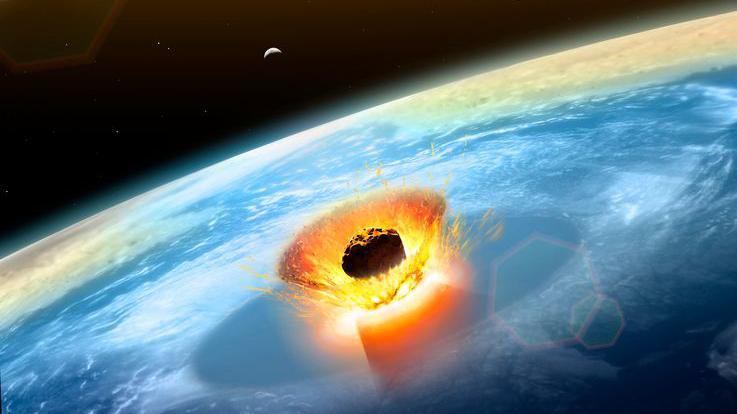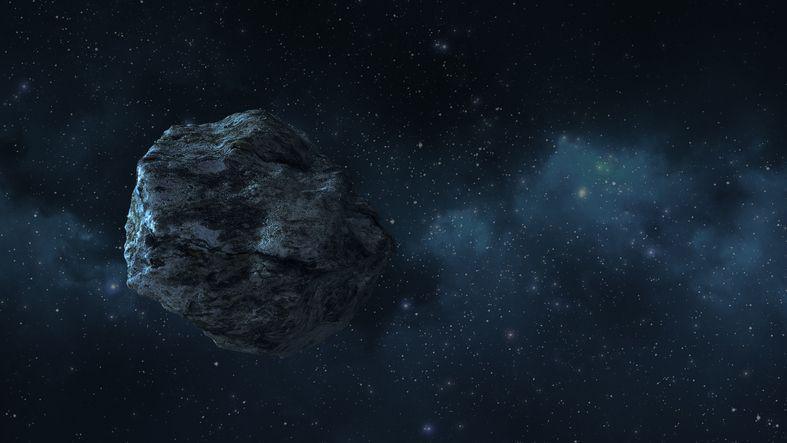Scientists discover more on asteroid that wiped out the dinosaurs

- Published
More information has come to light about an asteroid that hit Earth sixty-six million years ago, say scientists at the University of Cologne in Germany.
A common belief about the asteroid is that the force of its impact on the Earth was so strong, it wiped out the dinosaurs and most other life forms.
The new study from Germany suggests that the asteroid came from the distant outer solar system beyond Jupiter - over 800 million kilometres away!
Experts say the findings could help us figure out how water arrived on Earth and could help stop future asteroid collisions.
Could dust have wiped out the dinosaurs?
- Published2 November 2023
New discovery about dinosaur-killing asteroid
- Published14 December 2021
Did TWO asteroids wipe out the dinosaurs?
- Published22 August 2022
What have scientists found?

Sixty-six million years ago an asteroid struck Earth off the coast of Mexico at the end of what was known as the Cretaceous period.
The space rock itself was six miles wide, but it hit the surface of the Earth with so much force that it left a crater that is 90-miles wide.
It caused a mega-earthquake, started a global winter and is commonly believed to have wiped out the dinosaurs and most other life on Earth.
Experts from the University of Cologne in Germany, looked at sediment samples formed at the time of the asteroid's impact.
Scientists had long suspected that the asteroid - which is officially known as the Chicxulub impactor - came from outer space.
But they didn't know exactly where from.
By taking a closer look at the samples and what they were made of - and comparing them to five other asteroid impacts - they were able to discover that it initially formed beyond Jupiter.
Researchers also said that the strike definitely came from an asteroid and not from a comet.
Mario Fischer-Godde, lead author of the study, explained: "We cannot be really sure where the asteroid was kind of hiding just before it impacted on Earth."
He added that after its formation, it may have made a stopover in the asteroid belt, located between Mars and Jupiter and where most meteorites originate.
